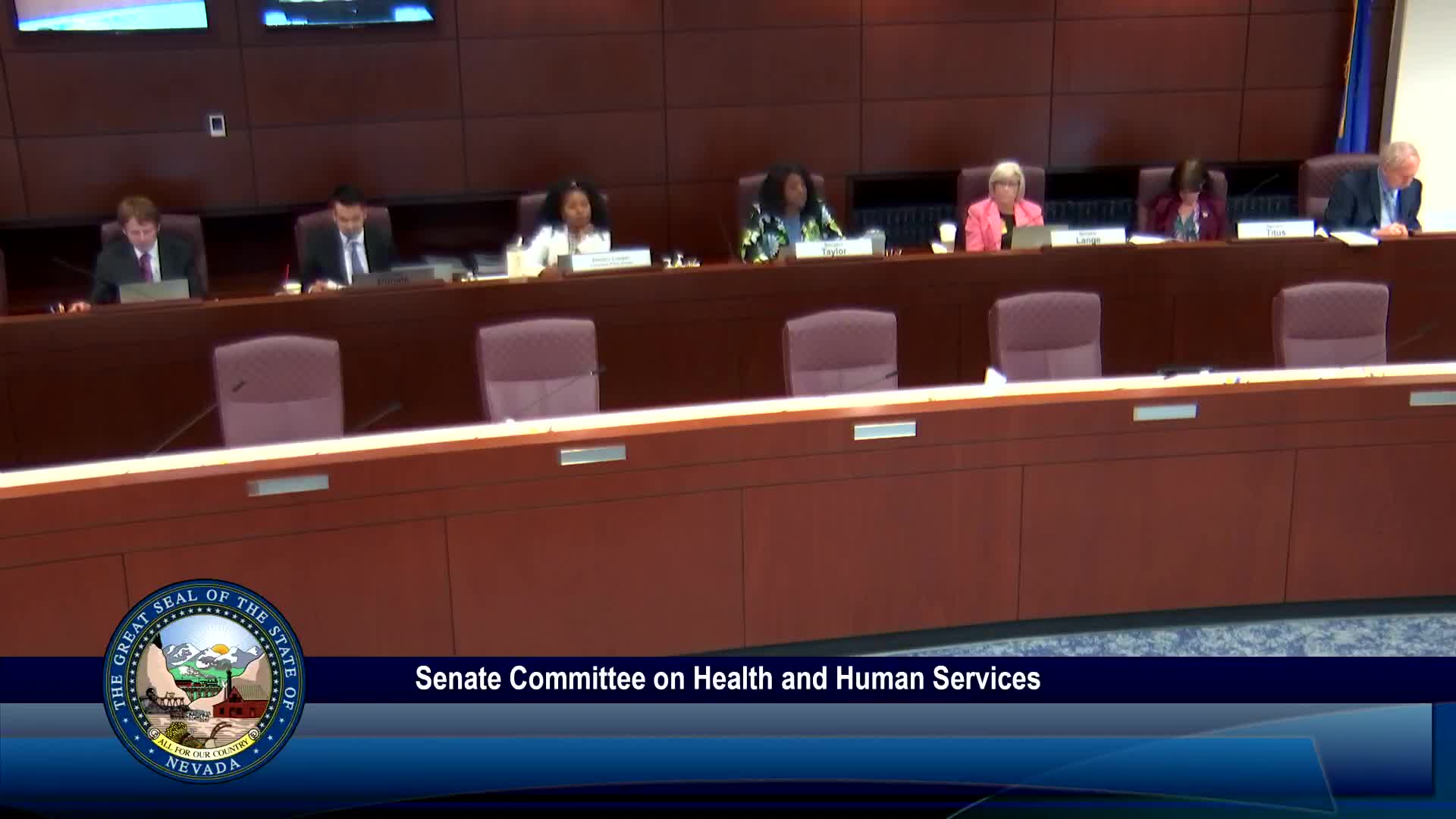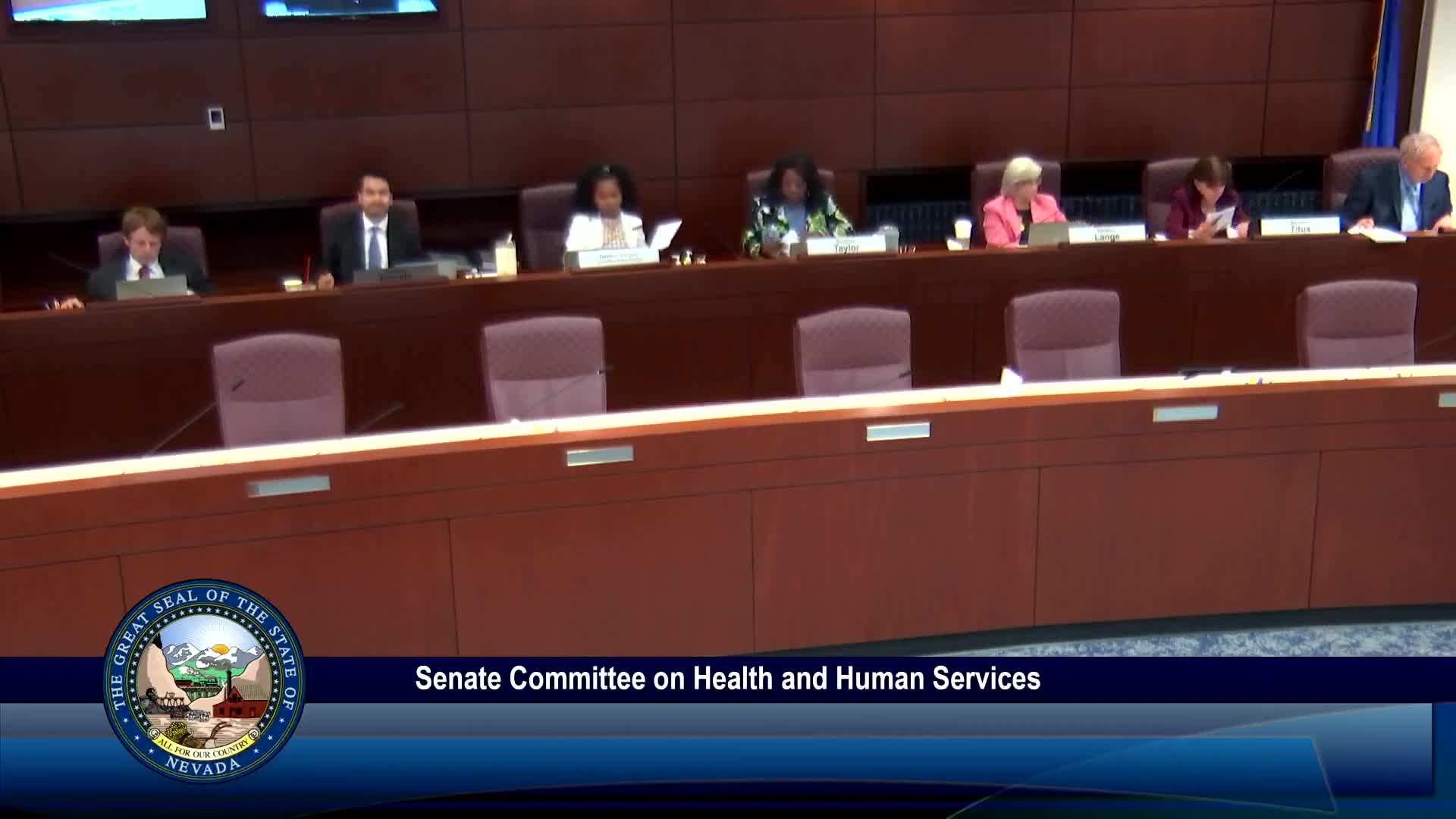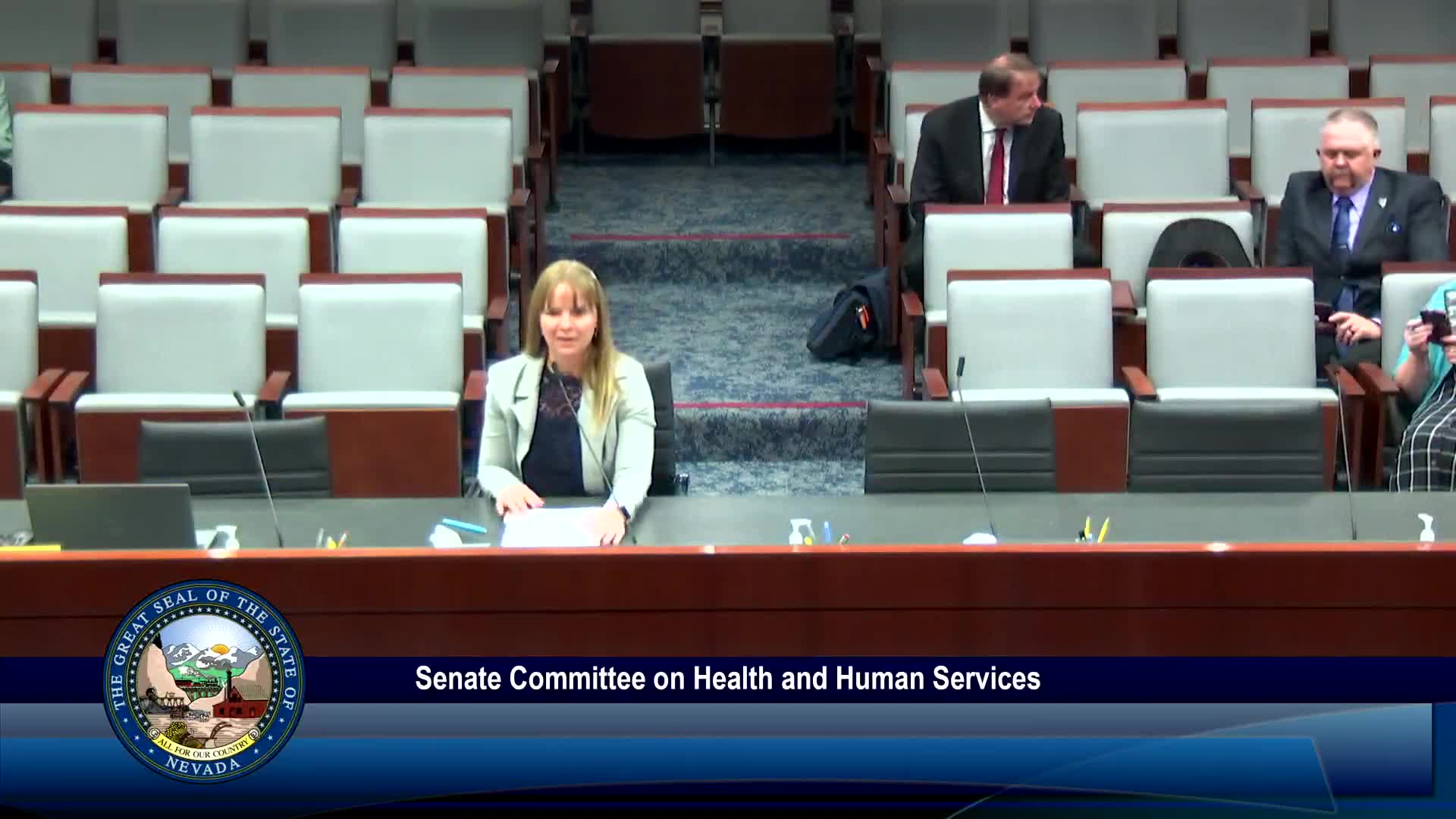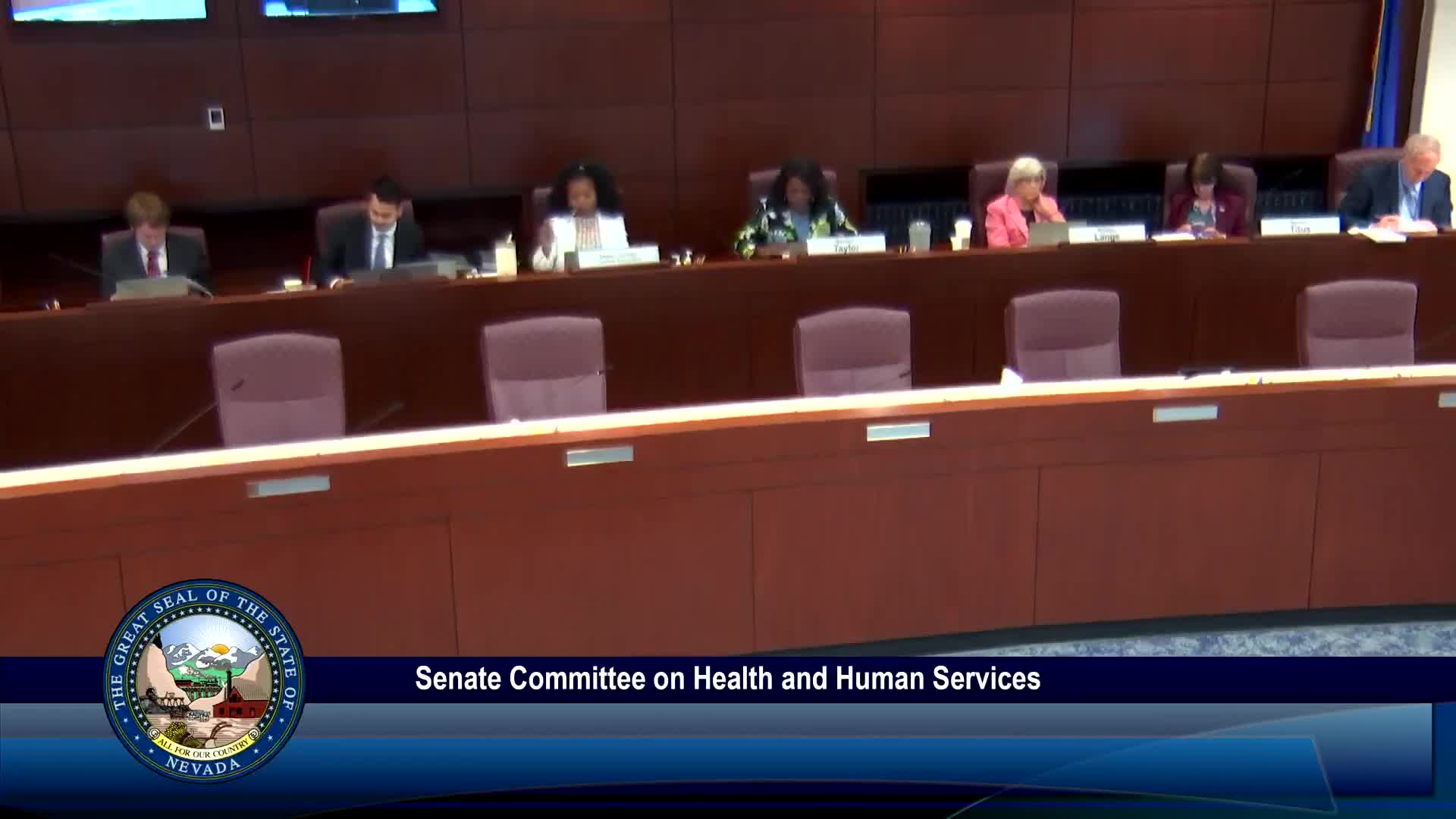Article not found
This article is no longer available. But don't worry—we've gathered other articles that discuss the same topic.

Bill would fund AI-driven app to target perishable discounts to SNAP recipients; supporters tout pilot results, food-pantries raise concerns

Bill would raise Nevada cottage food sales cap to $100,000 and move oversight to Department of Agriculture

Bill would rename Nevada Medicaid advisory body and add beneficiary council to meet new federal rules

